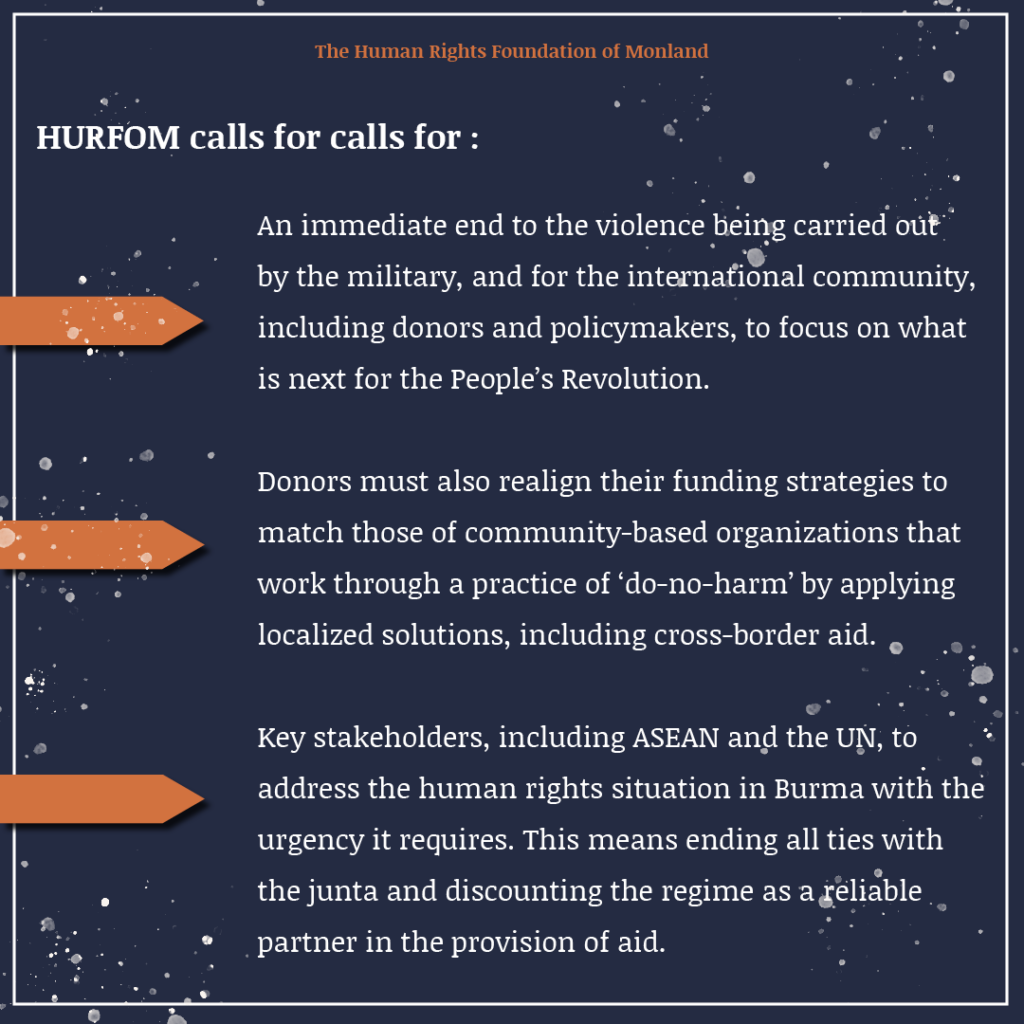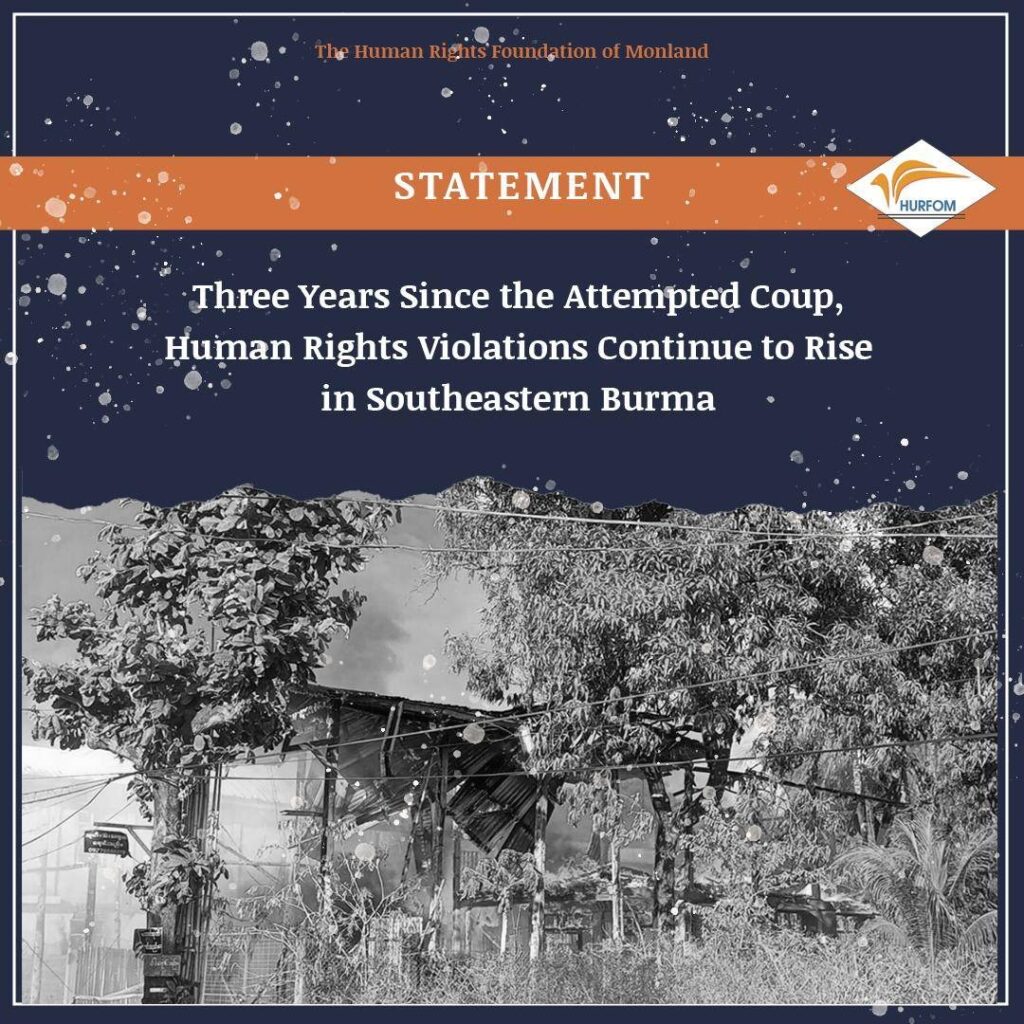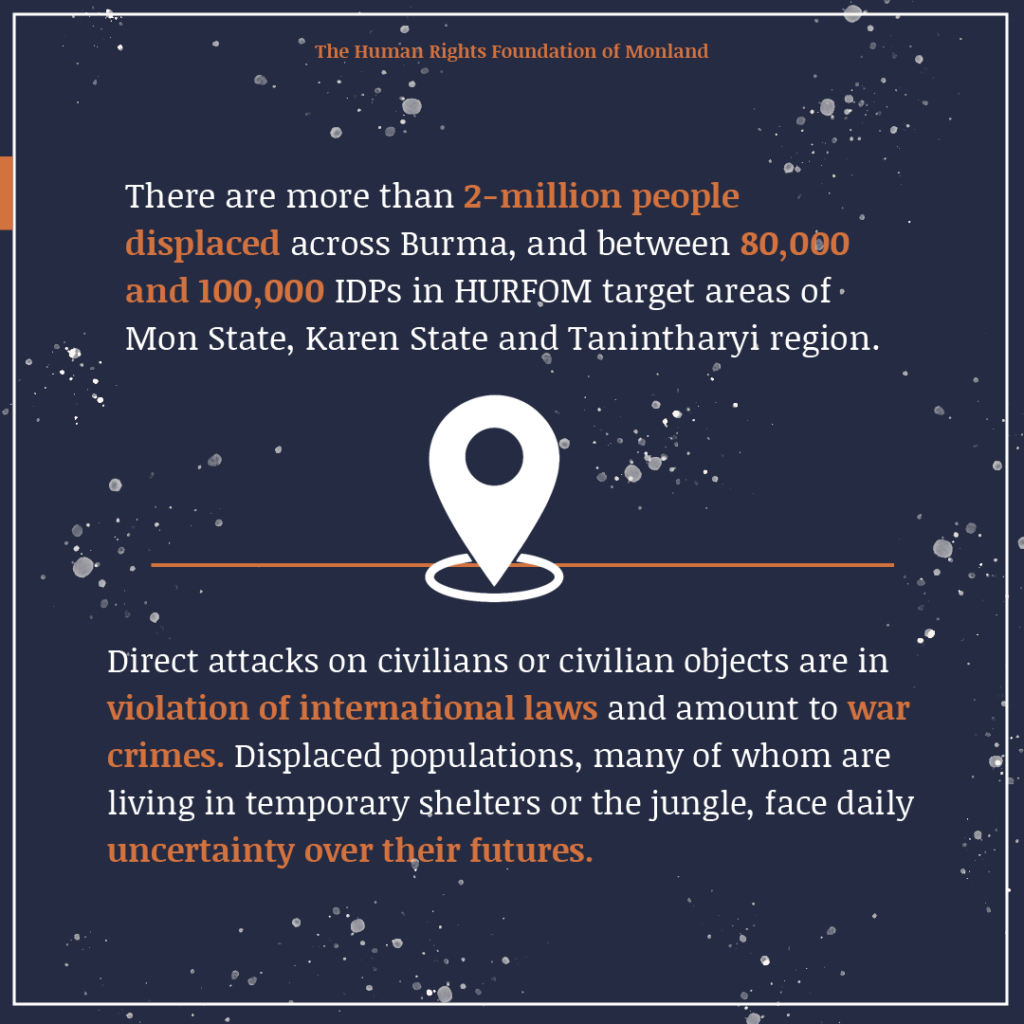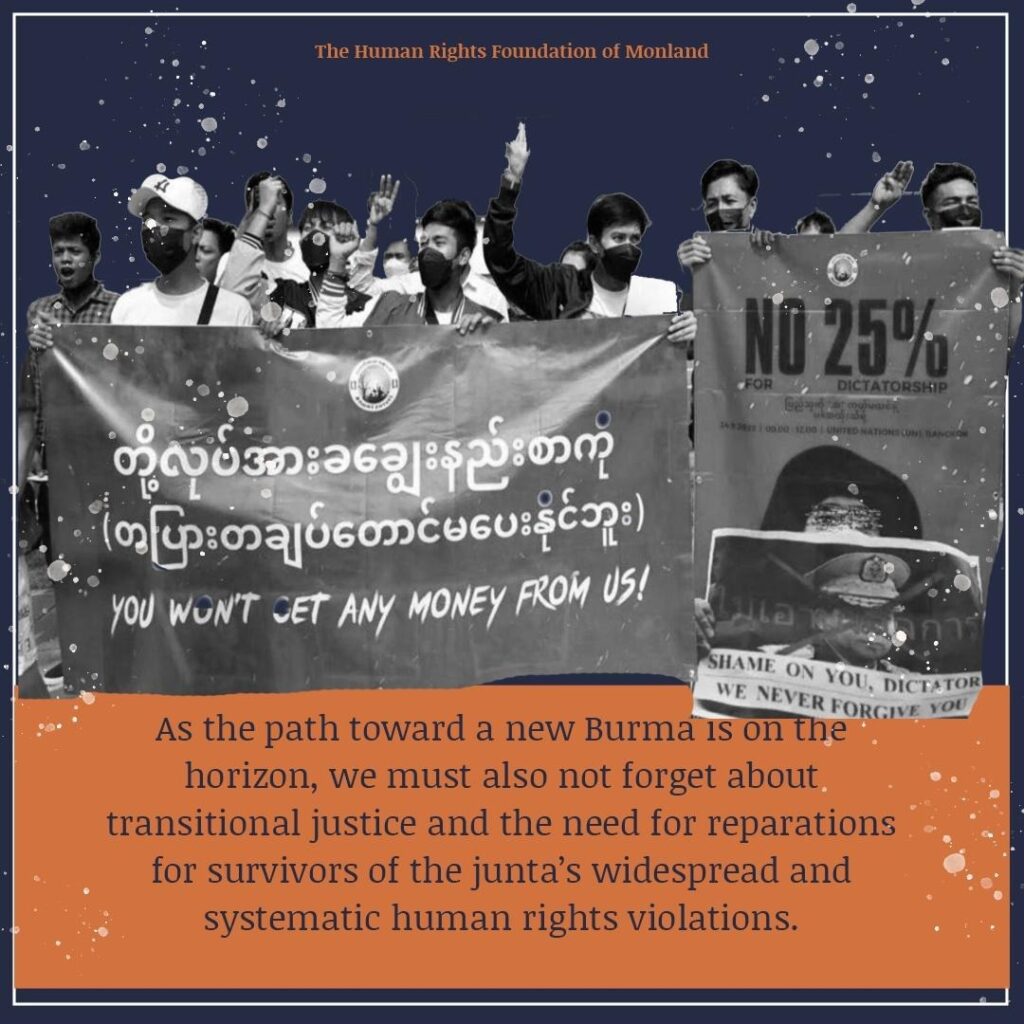Three Years Since the Attempted Coup, Human Rights Violations Continue to Rise in Southeastern Burma
February 1, 2024
For Immediate Release
While the Burma Army continues to commit atrocity crimes with impunity, civilians are bearing the brunt of the conflict. For decades, ethnic people have endured relentless assaults on their communities as the military waged wars and broke ceasefires in pursuit of power. Decades of authoritarian rule in Burma have caused instability and structural inequalities. When the junta attempted their coup on 1 February 2021, citizens refused to go backwards. Their unbreakable spirit has propelled the Spring Revolution.
Over the past three years, the Human Rights Foundation of Monland (HURFOM) has documented the widespread suffering of innocent civilians and collected evidence of crimes perpetrated by the junta. Human rights violations including sexual-gender-based violence, torture, arbitrary arrest and unlawful detainment, and destruction of properties, are on the rise in Mon State, Karen State and the Tanintharyi region.
The shift in gains on the battlegrounds in which the Burma Army is losing has led to the regime sending more reinforcements to civilian areas to instill fear. This has resulted in a profoundly concerning and worsening humanitarian crisis, with more than two million people displaced across the country. In HURFOM target areas, there are between 80,000 and 100,000 civilians who have been forced to flee their homes due to military offensives.
In many cases documented by HURFOM, local residents faced shelling, arson and firing in their villages without active conflict. Direct attacks on civilians or civilian objects are in violation of international laws and amount to war crimes. Displaced populations, many of whom are living in temporary shelters or the jungle, face daily uncertainty over their futures.
The changes in political developments over the last three years, including emerging federal governance institutions at the local level, are crucial for the international community to acknowledge and observe. While the opposition forces continue to gain territory, local leaders and experienced human rights defenders are forming governments with infrastructure intended to meet the needs of civilians, including education, health care, humanitarian aid and legal assistance. As the path toward a new Burma is on the horizon, we must also not forget about transitional justice and the need for reparations for survivors of the junta’s widespread and systematic human rights violations.
HURFOM, therefore, calls for an immediate end to the violence being carried out by the military, and for the international community, including donors and policymakers, to focus on what is next for the People’s Revolution. They should engage with local civil society organizations on what they can take to ensure that they are on the right side of history.
Donors must also realign their funding strategies to match those of community-based organizations that work through a practice of ‘do-no-harm’ by applying localized solutions, including cross-border aid. Activists and human rights defenders, including those affiliated with the Civil Disobedience Movement (CDM), must be encouraged and their platforms safely elevated by recognizing their immense sacrifice and efforts.
HURFOM also calls upon key stakeholders, including ASEAN and the UN, to address the human rights situation in Burma with the urgency it requires. This means ending all ties with the junta and discounting the regime as a reliable partner in the provision of aid. Instead, they must take steps to impose a global arms embargo and sanction aviation fuel. Finally, the human rights situation must be referred to the International Criminal Court.
Civilians have paid a heavy price in the pursuit of democracy. Their sacrifices cannot and must not be overlooked. Now, perhaps more than ever, the international community must listen to the voices of civil society that are long-trusted for answers to the multiple crises on the ground. The revolution can and will succeed through organized efforts of human rights defenders, including civil society organizations and first responders working actively to respond to the needs of conflict-affected populations.

Media Contact
Nai Aue Mon, HURFOM Program Director
Email: auemon@rehmonnya.org
Signal: +66 86 167 9741
______________________________________________________________________________________
HURFOM was founded by exiled pro-democracy students from the 1988 uprisings, recent activists and Mon community leaders and youth. Its primary objective is the restoration of democracy, human rights and genuine peace in Burma. HURFOM is a non-profit organization, and all its members are volunteers with a shared vision for peace in the country.






















































